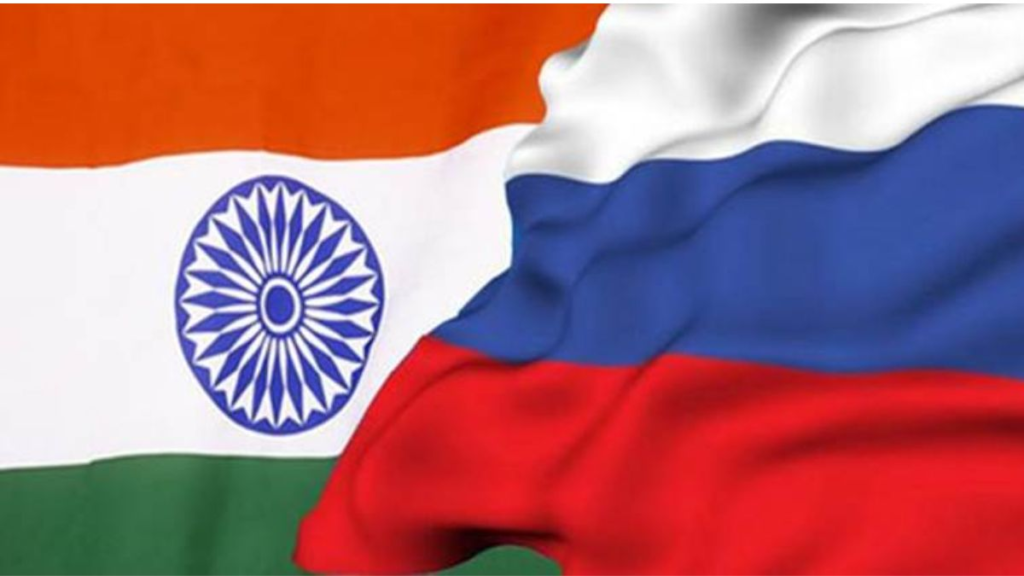The Financial Express
By Anita Inder Singh
The debate on the recent Xi-Putin summit has centred around the Russia-Ukraine war and the global geopolitical changes it has wrought. Insufficient attention has been paid to China’s economic and technological advancement as a major factor in confirming its superior place in its strategic partnership with Russia—especially the China-Russia technological connection.
Moscow now wants to craft ‘Technological Alliances in the Greater Eurasia’. But wanting to avoid over-dependence on China, Russia hopes to cultivate India as a leading tech partner. This became apparent at the India-Russia Business Forum: Strategic Partnership for Development and Growth in New Delhi (March 29-30).
However, stronger tech ties with a China-dependent Russia could have awkard consequences for India’s security relationships with the US and other Quad partners, Japan and Australia. In May 2022, India and the US announced the Initiative on Critical and Emerging Technologies (iCET), an interlinked framework for cooperation on such technologies, underpinned by democratic values.
Such implications would go beyond the controversial decisions by Beijing and New Delhi to increase their imports of Russian oil, thus helping Russia to overcome the effects of western economic sanctions which have resulted in the loss of Russia’s European oil market. Wittingly or unwittingly, the separate national interests of India and China have led Asia’s two largest rivals to prop up Russia’s war economy.
The China-dominated economic relationship could have complex fallout for India, which is simultaneously dependent on Russia for arms and oil, and has China as a top trading partner. The only other country with which India has comparably strong trading ties is the US. But America and China are the arch-foes in the New Cold War. Unsurprisingly, it is sometimes hard for India to navigate this diplomatic and strategic cats-cradle, which could become even more problematic on hi-tech issues.
Moscow has long been Beijing’s economic suitor and has invited it to invest, especially in the Russian Far East, which shares a border with China. China is Russia’s largest trading partner, but its top trading ties are with the US, European Union, and Japan. Until 2022, Russia ranked in the 10th place. So China does not want to spoil its ties with the countries which contribute most to its global economic power.
Russia is China’s junior partner in technology. War has increased Russia’s dependence on China for critical technologies. So it will become more challenging for New Delhi to cope with the growing dependence of Russia’s wartime economy on China for high tech.
India’s long defence partnership with Russia has already faced some consequences because of the effect of the Ukraine war on Russian supply chains. The Indian Air Force says Russia has had difficulties in delivering spare parts to India. And India’s Army chief, General Manoj Pande, has affirmed that India’s defence forces are “looking at alternative sources of supplies.”
Overcoming the consequences of Western technology sanctions is tough for Russia. For, soon after Russia’s mounted its assault on Ukraine on 24 February 2022, Russia started facing a brain drain, which placed tech jobs and therefore tech expertise at risk. China helped. Thanks to China, Russia has imported significant amounts of technology for use by its defense industry—despite global sanctions. Russia continues to have access to crucial dual-use technologies such as semiconductors. Furthermore, Xi told Putin of China’s keenness to expand cooperation with Russia in trade, investment, supply chain, energy and hi-tech areas. That is good news for Russia. Nevertheless, Moscow wants to avoid reliance on China and will try to persuade India to become a leading high-tech associate, especially in IT, cyber security, and technological sovereignty at their forthcoming business forum in New Delhi. Moscow also wants India to support Russian firms as they refocus on new markets.
Such cooperation could open new doors for India—but also raises the question of its tech and security partnerships with Quad countries.
Last January, India and the US formally inaugurated the iCET. Both countries wish to counter China’s growing dominance in advanced technology. The Initiative provides India and the US an opening to strengthen their trade and defense relationship, in collaboration with Australia and Japan
The trouble is that since technology cooperation entails cross-platform functioning, any technology collaboration with Russia could imply simultaneous cooperation with China. Rich EU countries amply illustrate the problems inherent in such a situation. Dependence on Chinese technology over a long period has made it difficult for them to reduce their reliance as their security concerns increase in the wake of the Ukraine war.
Moreover, as Moscow looks to create ‘Technological Alliances in the Greater Eurasia’, China’s role in this association will not suit India, which has banned more than 200 Chinese apps.
Moscow also envisages expanding collaboration with the China-led Shanghai Cooperation Organization, and BRICS on information technology, cyber security, technological sovereignty, and more. Having China-backed Russia as a major technology partner could bring India’s hi-tech ambitions into conflict with the technology engagement it wants to make with Quad partners. Closer tech cooperation with Russia could therefore raise questions about India’s security choices.
As tech decoupling increases in the New Cold War, India’s choice of hi-tech partners will be a pivotal decision. This decision will have a bearing on the development of its own indigenous defense industry—which in turn will impact on its ability to turn global power shifts to its advantage.
The writer is a Founding professor, Centre for Peace and Conflict Resolution
Get live Share Market updates and latest India News and business news on Financial Express. Download Financial Express App for latest business news.

